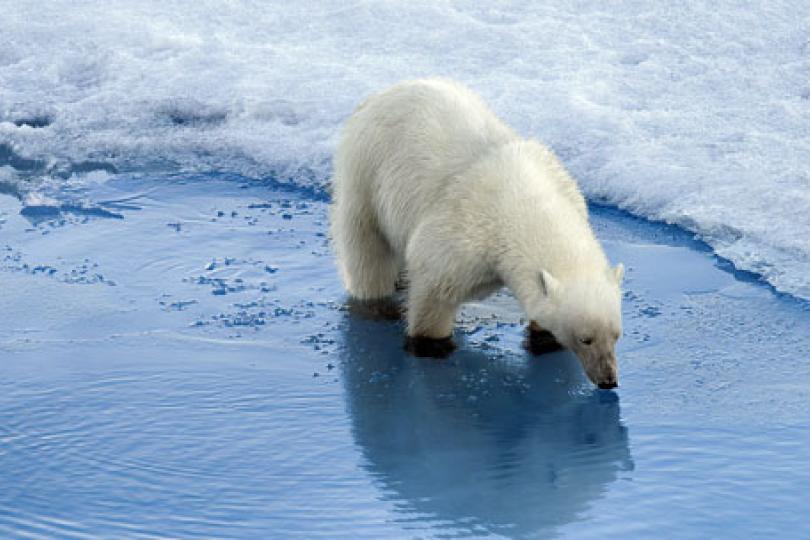The key to halting climate change: admit we can't save everything
Editor's note: This opinion piece by Ayana Elizabeth Johnson originally appeared in The Guardian.
Climate change, and human resistance to making the changes needed to halt it, both continue apace: 2015 was the hottest year in recorded history, we may be on the brink of a major species extinction event in the ocean, and yet political will is woefully lacking to tackle this solvable problem.
Given these dire ecological trends, limited public funding and legislative gridlock, the time is ripe for a budget-neutral, executive-branch approach for managing our natural resources: triage. A science-based triage approach should be used to classify areas and species into one of three categories: not at immediate risk, in need of immediate attention or beyond help.
Refusing to apply triage implicitly assumes that we can save everything and prevent change, which we cannot. Prioritization will occur regardless, just ad hoc and shrouded. This triage system would replace the status quo of inadequately managing our full portfolio of over 1m square miles of public land and 1,589 threatened and endangered species.
For areas or species not at immediate risk, we can delay action while monitoring to detect changes in that status. For example, increased temperatures and prolonged periods of droughtmay increase both wildfires and populations of tree-killing beetles in forests of the Pacific north-west. Knowing this, we can track these variables and explore management options that minimize risk without prematurely devoting disproportionate resources.
For areas needing immediate help, we must act now. For the coral reefs of the Florida Keys and US Virgin Islands, all anthropogenic impacts (such as overfishing, pollution and coastal development) must be dramatically reduced. Otherwise, because the health of these coral reefs is currently so compromised, they are unlikely to survive the sea level rise, rising ocean temperatures and increasing acidification resulting from climate change. For species protections, it would be wise to focus on keystone species such as oysters (water filterers), parrotfish (algae eaters on overgrown coral reefs), bees (pollinators) and wolves (key predators).
For areas we can no longer maintain, we must make the most difficult of choices – give up, and accept that change is not always preventable. In Alaska, it may be too late to prevent the climate change-induced shift from coniferous-dominated to deciduous-dominated stands, with unfortunate impacts on forest-dwelling species and the logging industry. In the ocean, entire fisheries can be lost from an area when species shift due to warming waters.
This is not to say we should de-list endangered species or revoke area protections. Rather, management should account for shifts in climate and habitats and aim to maintain the services ecosystems provide (like pollination, soil fertility, air and water purification and recreation), but acknowledge it may be costly and futile to attempt to maintain a particular ecosystem configuration or species in a particular location.
However, even degraded coral reefs can supply key ecosystem services such as fisheries and storm protection. A river can continue to be a source of clean, fresh drinking water and provide habitat for a diversity of species even if it is no longer suitable for trout or salmon.
For triage to be successful, categorization must be transparent, based on the best available science, and it must avoid politicization and subjectivity. This approach would require us to weigh the many benefits ecosystems provide against the cost effectiveness of various management options. Given the distribution of management authority and the value of local ecological knowledge, these discussions and decisions would need to be just as robust at the local and state levels as at the national level.
Employing triage would enable us to holistically consider our natural resources, design strategic management, focus our energies and resources and save as much of our environment as possible for the benefit of this and future generations.
